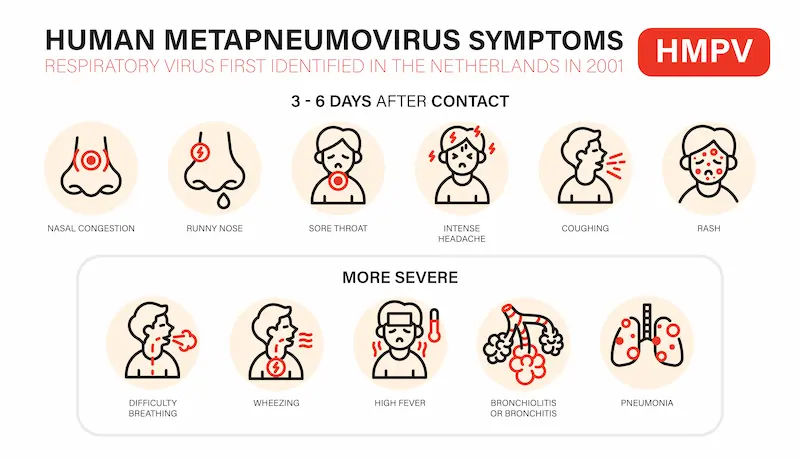How to Treat Shaky Hands: A Complete Guide
Know about shaky hands, what it is, types, causes, diagnosis and treatment options and more.

Written by Dr. Vasanthasree Nair
Reviewed by Dr. Rohinipriyanka Pondugula MBBS
Last updated on 13th Jan, 2026

Introduction
Have you ever reached for a coffee cup only to notice your hand trembling uncontrollably? You're not alone. Shaky hands, medically known as tremors, are a common condition affecting millions. While often associated with nervousness or ageing. This involuntary shaking can be more than just an inconvenience; it can impact your daily life, from writing and eating to your overall confidence. This comprehensive guide will walk you through everything you need to know, from identifying the different types of hand tremors and their underlying causes to exploring a wide range of effective treatments for shaky hands, both medical and natural.
Understanding Hand Tremors: More Than Just Nerves
Before diving into treatments, it's vital to understand what you're dealing with. A tremor is an involuntary, rhythmic muscle contraction that leads to shaking movements in one or more parts of the body. Hand tremors are the most common.
Consult a Neurologist for Personalised Advice
The Main Types of Hand Tremors
Not all shakes are created equal. Doctors categorise them based on when they occur:
- Resting Tremor: This occurs when the muscle is relaxed and the hand is fully supported, like when it's resting on your lap. It's often a hallmark of Parkinsonian tremor.
- Action Tremor: This happens during any voluntary movement. It's further broken down into:
- Postural Tremor: Occurs when you hold a position against gravity, like extending your arms straight out.
- Kinetic Tremor: Occurs during movement, like touching your finger to your nose.
- Intention Tremor: This is a specific type of kinetic tremor that gets worse as you get closer to a target, making tasks like pressing a button very difficult. It's often linked to issues with the cerebellum.
Common Causes of Shaky Hands
The underlying cause of hand shaking is the primary determinant for treatment. Key causes include:
- Essential Tremor (ET): The most common movement disorder, often hereditary. It's typically a postural or kinetic tremor that can also affect the head and voice.
- Parkinson's Disease: Characterised by a resting tremor, often starting in one hand as a pill-rolling motion, alongside stiffness and slowness of movement.
- Enhanced Physiological Tremor: This is a noticeable version of the fine tremor everyone has. It can be triggered by anxiety, stress, fatigue, caffeine, low blood sugar, or certain medications.
- Dystonic Tremor: Occurs in individuals with dystonia, a movement disorder where incorrect brain signals cause muscles to twist into unusual positions.
When to See a Doctor: Don't Self-Diagnose
It's critical to consult a healthcare professional for a proper diagnosis of hand tremors. Seek medical advice if your tremor:
- Suddenly appears or worsens significantly.
- Interferes with daily activities (eating, writing, working).
- It is accompanied by other symptoms like muscle stiffness, slow movement, trouble walking, or changes in speech.
- You are concerned it could be a sign of a neurological disorder.
A doctor, often a neurologist, will perform a physical and neurological exam, review your medical history, and may order tests like blood work or an MRI to rule out other conditions.
Medical Treatments for Shaky Hands
Once diagnosed, your doctor will recommend a treatment plan tailored to the cause and severity of your tremor.
Medications for Tremor Control
Several medications can help reduce the amplitude of shakes:
- Beta-Blockers: Drugs like propranolol are often the first line of defense for Essential Tremor. They work by blocking the stimulating effect of adrenaline.
- Anti-Seizure Medications: Primidone, gabapentin, and topiramate can be effective, especially for those who cannot take beta-blockers.
- Parkinson's Disease Medications: Levodopa/carbidopa is the gold standard for treating tremors associated with Parkinson's.
- Tranquillizers: Benzodiazepines like clonazepam can be used, but due to their potential for dependence and sedation, they are typically reserved for when other medications fail.
Botox Injections
- Botulinum toxin (Botox) injections can be a highly effective treatment for hand tremors, particularly for dystonic tremors. The toxin works by weakening the overactive muscles responsible for the shaking, with effects lasting for several months.
Advanced and Surgical Options
For severe, medication-resistant tremors, these interventions can be life-changing:
- Deep Brain Stimulation (DBS): A surgical procedure where electrodes are implanted deep within the brain. These electrodes are connected to a neurostimulator (similar to a pacemaker) implanted in the chest, which sends electrical pulses to disrupt the abnormal signals causing the tremor. It's highly effective for both Essential Tremor and Parkinson's tremor.
- Focused Ultrasound: A non-invasive procedure that uses precisely targeted sound waves to destroy a tiny area of brain tissue responsible for the tremors. This is a newer option that doesn't require any incisions.
Lifestyle and Home Remedies for Managing Tremors
Medical intervention is only one piece of the puzzle. Lifestyle changes for shaky hands can significantly improve your quality of life.
Diet and Nutrition Adjustments
What you consume has a direct impact:
- Avoid Tremor Triggers: Caffeine and other stimulants are well-known for exacerbating tremors. Alcohol, while it may temporarily suppress Essential Tremor for some, leads to a rebound effect and is not a recommended treatment.
- Maintain Stable Blood Sugar: Low blood sugar (hypoglycemia) can cause shaking. Eat regular, balanced meals with complex carbohydrates, protein, and healthy fats.
The Role of Physical and Occupational Therapy
Therapists are invaluable allies in managing hand tremors:
- Physical Therapy: Can help improve muscle control, coordination, and strength.
- Occupational Therapy: Focuses on adaptive techniques for daily tasks. An OT can recommend:
- Weighted utensils and pens to stabilise movements.
- Specialised grips for tools and kitchenware.
- Strategies to get dressed, cook, and use a computer more easily.
Stress Management and Relaxation Techniques
- Since stress and anxiety are major amplifiers of tremors, learning to manage them is crucial. Practices like yoga for essential tremor, meditation, deep breathing exercises, and mindfulness can calm the nervous system and reduce the severity of shakes.
Conclusion
Living with shaky hands can be challenging, but it is a highly manageable condition. The journey to steadier hands begins with understanding the root cause through a professional diagnosis for hand tremors. The key is to be proactive. Don't dismiss persistent shaking as just a sign of ageing or nerves. By partnering with your doctor and incorporating the strategies outlined in this guide, you can significantly reduce the impact of tremors on your life and regain confidence in your daily activities.
Consult a Neurologist for Personalised Advice
Consult a Neurologist for Personalised Advice

Dr Debnath Dwaipayan
Neurosurgeon
9 Years • MBBS, MS(Gen. Surgery), DrNB (Neurosurgery)
Delhi
Apollo Hospitals Indraprastha, Delhi

Dr. Aditendraditya Singh Bhati
Neurosurgeon
21 Years • MBBS(2004), DNB Neurosurgery(2014); MNAMS; Fellow Skull Base Endoscopy (Italy), Fellow Extended Skull Base ( Weill Cornell, USA), Fellow ZAP-X Radiosurgery. Member of American Association of Neurological Surgeons
Delhi
Apollo Hospitals Indraprastha, Delhi
(100+ Patients)

Dr. Ganeshgouda Majigoudra
Neurologist
10 Years • MBBS, MD ( GENERAL MEDICINE) DM (NEUROLOGY)
Bengaluru
Apollo Clinic, JP nagar, Bengaluru

Dr. Jaidev S
Neurosurgeon
10 Years • MBBS, MS ( Genera Surgery), MCH Neurolosurgery
Bengaluru
Apollo Clinic, Indiranagar, Bengaluru

Dr S Selvin
Neurologist
10 Years • MBBS, MD, DM (Neurology), FINR fellowhsip in Interventional Neuro Radiology
Chennai
Apollo Speciality Hospitals Vanagaram, Chennai
Consult a Neurologist for Personalised Advice

Dr Debnath Dwaipayan
Neurosurgeon
9 Years • MBBS, MS(Gen. Surgery), DrNB (Neurosurgery)
Delhi
Apollo Hospitals Indraprastha, Delhi

Dr. Aditendraditya Singh Bhati
Neurosurgeon
21 Years • MBBS(2004), DNB Neurosurgery(2014); MNAMS; Fellow Skull Base Endoscopy (Italy), Fellow Extended Skull Base ( Weill Cornell, USA), Fellow ZAP-X Radiosurgery. Member of American Association of Neurological Surgeons
Delhi
Apollo Hospitals Indraprastha, Delhi
(100+ Patients)

Dr. Ganeshgouda Majigoudra
Neurologist
10 Years • MBBS, MD ( GENERAL MEDICINE) DM (NEUROLOGY)
Bengaluru
Apollo Clinic, JP nagar, Bengaluru

Dr. Jaidev S
Neurosurgeon
10 Years • MBBS, MS ( Genera Surgery), MCH Neurolosurgery
Bengaluru
Apollo Clinic, Indiranagar, Bengaluru

Dr S Selvin
Neurologist
10 Years • MBBS, MD, DM (Neurology), FINR fellowhsip in Interventional Neuro Radiology
Chennai
Apollo Speciality Hospitals Vanagaram, Chennai




